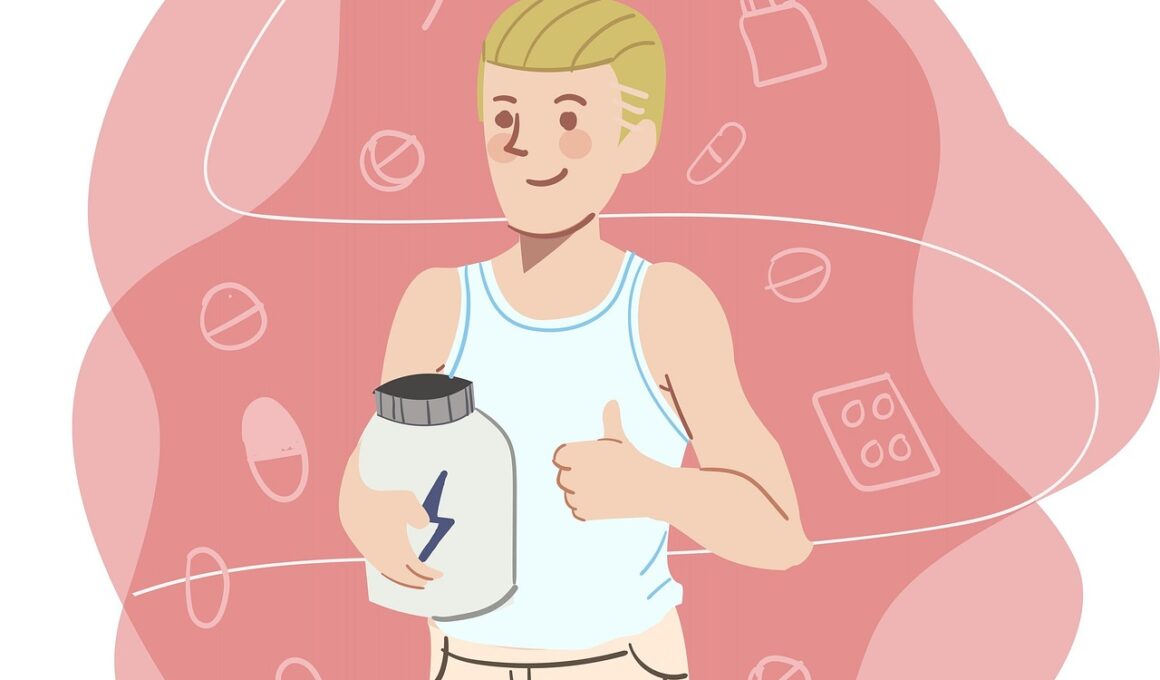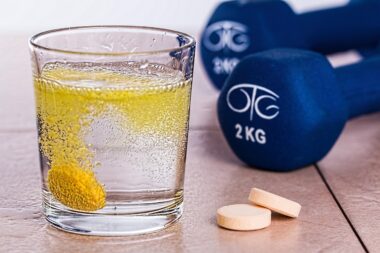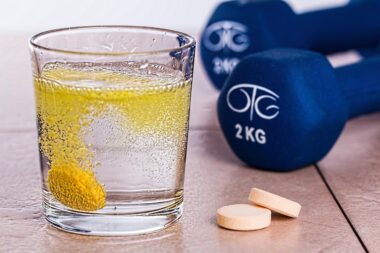How Much Protein Do You Need After a Workout for Muscle Growth?
Muscle growth is heavily influenced by various factors, but one of the most critical elements is post-workout nutrition. After an intense workout, your muscles undergo a process of repair and growth, and proper nutrition plays a vital role in this process. Protein consumption after exercise helps stimulate muscle protein synthesis, which is essential for muscle recovery and growth. So, how much protein do you really need to maximize muscle gains? According to many studies, the general recommendation for post-workout protein intake is around 20 to 30 grams. This specified amount ensures that your body receives sufficient amino acids to kickstart the recovery process. Moreover, the timing of protein intake is equally important. Consuming protein within a window of about 30 minutes to two hours post-exercise is considered optimal. This timing helps to replenish the amino acids that your body has utilized during your workout. Various protein sources include chicken, fish, eggs, and plant-based options such as legumes and tofu. Ultimately, personal needs may vary based on individual goals, workout intensity, and body weight.
When it comes to selecting a protein source, consider both the quality and the speed of digestion. Fast-digesting proteins, such as whey, work well as post-workout options. They are absorbed rapidly, providing the necessary nutrients to your muscles in a timely manner. On the other hand, slow-digesting proteins, like casein, are not ideal right after a workout but can be included in your overall daily intake. It’s essential to not only focus on protein but also on a holistic recovery plan that includes carbohydrates and fats. Carbohydrates help replenish glycogen stores, crucial for muscle recovery. An ideal post-workout meal might consist of a balance of protein, carbohydrates, and fats to optimize muscle recovery further. For example, combine grilled chicken with brown rice and vegetables for comprehensive nutrition. Supplements can also play a role, but it’s best to prioritize whole food sources first. If you’re aiming to build significant muscle mass, consider your total daily intake of protein. Aim for approximately 1.6 to 2.2 grams of protein per kilogram of body weight, depending on your level of activity.
The Role of Amino Acids in Muscle Repair
Amino acids, the building blocks of proteins, play a crucial role in muscle repair and recovery. During exercise, especially resistance training, muscle fibers undergo stress and damage. The intake of protein post-workout provides essential amino acids to repair these damaged fibers. Among the amino acids, branched-chain amino acids (BCAAs) like leucine, isoleucine, and valine are particularly important for muscle recovery. Studies have indicated that leucine, in particular, plays a significant role in stimulating muscle protein synthesis. Including sources rich in BCAAs in your post-workout meals can enhance recovery and potentially lead to greater muscle gains over time. Foods such as poultry, beef, fish, eggs, and dairy products are excellent BCAA sources. If you follow a plant-based diet, options like quinoa, soy, and chickpeas can also provide similar benefits. Combining different protein sources ensures a complete amino acid profile, enhancing their effectiveness. Therefore, when planning your post-workout nutrition, consider the balance of essential amino acids to support your muscle recovery effectively.
Hydration is another key component of post-workout nutrition that is often overlooked. After a workout, your body can lose a significant amount of fluids through sweat. Rehydration should occur simultaneously with protein consumption. A hydrated body helps to transport nutrients effectively, enabling better muscle recovery and growth. To assess your hydration needs, consider weighing yourself before and after workouts to gauge fluid loss and drink accordingly. By replacing lost fluids, you remove toxins from your body and promote better nutrient absorption. Many individuals overlook the importance of electrolytes as well. When sweating, essential minerals like sodium, potassium, and magnesium are lost. Including electrolyte-rich fluids or snacks post-workout can replenish what was lost during exercise. Sports drinks, coconut water, or electrolyte tablets can help facilitate recovery. Always choose the right options based on workout intensity and duration. Often, simple water is sufficient for shorter workouts, but longer sessions may benefit from additional electrolyte support. A comprehensive approach to hydration alongside protein intake will enhance your overall workout recovery and future performance.
Tailoring Protein Intake to Your Goals
Your protein needs after a workout can vary based on your individual fitness goals. For individuals aiming for muscle gain, focusing on higher protein intake after workouts becomes essential. A tailored approach may require you to consume more than the standard recommendation to fully support your muscle-building efforts. Enhancements in muscle mass typically occur when a caloric surplus accompanies adequate protein consumption. Assess your routine—working with a registered dietitian can help in designing a plan that aligns with your specific needs. Some individuals may need to increase their intake significantly, especially those engaged in intense strength training or bodybuilding. Conversely, if weight loss is your goal, a well-structured protein intake can help retain muscle mass while losing fat. A higher protein diet can lead to reduced feelings of hunger and help diminish cravings, facilitating a healthier weight loss journey. Therefore, understanding how your goals intersect with protein needs is essential for maximizing your workout recovery and achieving the desired results.
Incorporating variety into your post-workout meals can not only help meet your protein needs but also keep your meals exciting and enjoyable. For maximum nutritional benefits, consider mixing different protein sources throughout the week instead of relying on a single type. Try combining plant-based proteins with animal sources for a diverse nutrient profile. This diversity aids not just muscle repair but also overall health and well-being. However, balance is essential; ensure that each meal constitutes an appropriate ratio of protein, carbohydrates, and fats needed for optimal recovery. Meal prepping can aid in creating a more structured approach, allowing you to plan meals that fit your post-workout needs conveniently. Cooking in batches and portioning meals helps guarantee you are receiving adequate protein immediately after your workouts. Additionally, don’t overlook protein-rich snacks, such as Greek yogurt, protein cookies, or energy bars that can easily be consumed on the go. These snacks can help maintain your energy levels throughout the day and aid in muscle recovery. Proper meal planning is a crucial strategy for long-term success.
Final Thoughts on Post-Workout Nutrition
To sum up, post-workout nutrition is a fundamental aspect of muscle growth that should not be ignored. Adequate protein intake plays a pivotal role in muscle recovery, protein synthesis, and overall performance optimization. Determining your specific protein needs can significantly enhance your fitness journey. Remember, consistency is crucial; make protein intake a regular habit after each workout to maximize results. Additionally, focus on hydration and the inclusion of other macros, such as carbohydrates and fats, for a comprehensive recovery strategy. Always listen to your body’s signals and adjust dietary needs accordingly, as individual differences are common. Whether you prefer whole food options or supplementation, aim to make informed choices that align with your goals. Consult professionals, such as nutritionists or trainers, to personalize your post-workout nutrition plan further. Over time, the combination of adequate protein, hydration, and a structured recovery routine will contribute significantly to your muscle growth and overall fitness success.
Incorporating variety into your post-workout meals can not only help meet your protein needs but also keep your meals exciting and enjoyable. For maximum nutritional benefits, consider mixing different protein sources throughout the week instead of relying on a single type. Try combining plant-based proteins with animal sources for a diverse nutrient profile. This diversity aids not just muscle repair but also overall health and well-being. However, balance is essential; ensure that each meal constitutes an appropriate ratio of protein, carbohydrates, and fats needed for optimal recovery. Meal prepping can aid in creating a more structured approach, allowing you to plan meals that fit your post-workout needs conveniently. Cooking in batches and portioning meals helps guarantee you are receiving adequate protein immediately after your workouts. Additionally, don’t overlook protein-rich snacks, such as Greek yogurt, protein cookies, or energy bars that can easily be consumed on the go. These snacks can help maintain your energy levels throughout the day and aid in muscle recovery. Proper meal planning is a crucial strategy for long-term success.





